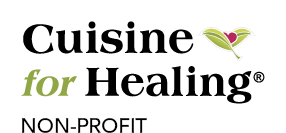Pop quiz! What is a bean but not? You are right! Lentils.
Lentils, botanically-known as Lens culinaris esculenta, have been a source of sustenance for our ancestors since prehistoric times. The word lentils comes from the Latin lens, and indeed, this bean cousin is shaped like the double convex optic lens which took its name from the lentil. Who knew?
Lentil artifacts have been found on archeological digs dating back 8,000 years, and The Bible’s book of Genesis tells the story of Esau, who gave up his birthright for a bowl of crimson lentils and a loaf of bread. As a tasty and plentiful source of protein, lentils graced the tables of peasants and kings alike. Poor Catholics who could not afford fish during the season of Lent substituted lentils. Thought to have originated in the Near East or Mediterranean area, lentils (known as dal or dahl in India) are small disks resembling a flat baby pea. When halved, dried lentils resemble their split pea cousins. They grow two to a pod and are dried after harvesting.
There are hundreds of varieties of lentils, with as many as fifty or more cultivated for food. They come in a variety of colors, with red, brown, and green being the most popular. Lentils have an earthy, nutty flavor, and some varieties lend a slight peppery touch to the palate. Lentils grow best in cool weather.
Lentils contain the highest amount of protein originating from any plant. The amount of protein found in lentils is up to 35%, which is comparable to red meat, poultry, fish, and dairy products. Lentils contain carbohydrates (15-25 grams per 100 grams). They are a good source of dietary fiber and also have a low amount of calories. Other nutritious components found are molybdenum, folate, tryptophan, manganese, iron, phosphorous, copper, vitamin B1, and potassium. Often, lentils and meat are compared for their effectiveness and many people vote for meat as the best source of protein. It is true that lentils do not contain all the amino acids, but they do have less fat content when compared with meat.
Eat lentils and reap their health benefits including:
1. Lower Cholesterol
Lentils help to reduce blood cholesterol since it contains high levels of soluble fiber. Lowering your cholesterol levels reduces your risk of heart disease and stroke by keeping your arteries clean.
2. Heart Health
Several studies have shown that eating high fiber foods like lentils reduces your risk of heart disease. Lentils are also a great source of folate and magnesium, which are big contributors to heart health. Folate lowers your homocysteine levels, a serious risk factor for heart disease. Magnesium improves blood flow, oxygen and nutrients throughout the body. Low levels of magnesium have been directly associated with heart disease, so eating lentils will keep your heart happy!
3. Digestive Health
Insoluble dietary fiber found in lentils helps prevent constipation and other digestive disorders like irritable bowel syndrome and diverticulosis.
4. Stabilized Blood Sugar
Adding to the many benefits of fiber, soluble fiber traps carbohydrates, slowing down digestion and stabilizing blood sugar levels. This can be especially helpful for those with diabetes, insulin resistance or hypoglycemia.
5. Good Protein
Of all legumes and nuts, lentils contain the third-highest levels of protein. 26 percent of lentil’s calories are attributed to protein, which makes them a wonderful source of protein for vegetarians and vegans.
6. Increases Energy
Lentils increase steady, slow-burning energy due its fiber and complex carbohydrates. Lentils are also a good source of iron, which transports oxygen throughout your body and is key to energy production and metabolism.
7. Weight Loss
Although lentils include all these beneficial nutrients like fiber, protein, minerals and vitamins, they are still low in calories and contain virtually no fat. One cup of cooked lentils only contains about 230 calories, but still leaves you feeling full and satisfied.
The great news about lentils are they are very inexpensive and hold up well in the refrigerator. You do still need to soak them as they take a long time to cook and soften.
Don’t want to go to the trouble? check out our Lentil soup at Cuisine for Healing. It is delicious!!
Hurry over- you don’t want to miss out.
Happy Healthy Eating!
Dana
https://www.thespruce.com/history-of-lentils-1807624
https://www.organic facts.net/health-benefits/health-benefits-of-lentils.html
https://www.mindbodygreen.com/0-5488/7-Health-Benefits-of-Lentils.html









